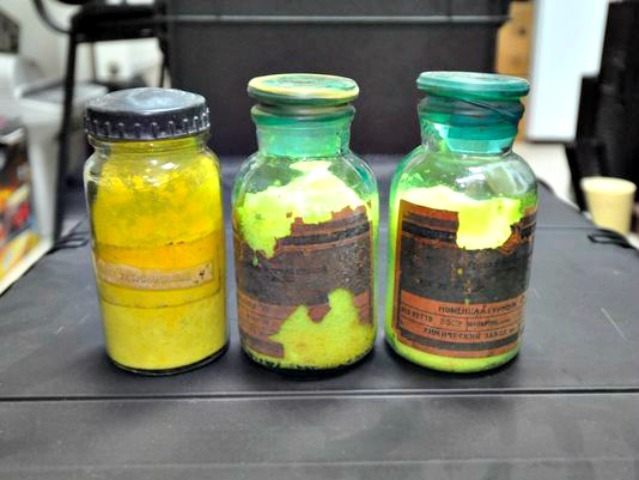Last month, there were reports of a joint effort between Eastern European countries, especially Moldova, and the FBI to crack down on nuclear smugglers. The deadly contraband for sale in those accounts was cesium, which could be used to create dirty bombs. The authorities were somewhat skeptical about these black marketeers possessing serious nuclear bomb fuel.
According to a follow-up story from Vice News and the Center for Public Integrity, that skepticism has faded, and U.S. officials are increasingly worried that Russian gangsters “somehow made off years ago with a full bomb’s worth of highly enriched uranium.” They have been trying to find the right buyers for sixteen years, and their sales pitch includes genuine samples of weapons-grade material.
“Five current or former US officials who have tracked nuclear smuggling, and who declined to be named because this assessment is classified, said it is now a consensus view within the intelligence community,” writes Vice News. “But no one in the West knows exactly who has this nuclear explosive material, and where they may be.”
It is an alarming story Western intelligence agencies have been keeping secret, while the Russian government has resisted cooperation, in part because it does not want to admit some of their uranium stockpile is missing.
According to Vice News, uranium samples seized from black marketeers have been tested by American and French nuclear scientists, and they all seem to come from the same stockpile, traced back to a facility in the Ural mountains that produces fuel for Russian nuclear weapons and naval reactors. A U.S. official described this as convincing evidence that a stash of nuclear material has “been in the wild since the mid-1990s.”
That was a time of political turmoil and low military morale in Russia, making the theft of nuclear materials chillingly plausible. A U.S. intelligence report in 2005 found it “highly unlikely that Russian authorities would have been able to recover all the material reportedly stolen.” A 2011 CIA report reached the same conclusion.
Unfortunately, despite international cooperation and some heroic police work by a few determined Moldovan cops, there have not been many arrests, and they have all been low-level operatives or “middlemen.” Some of them received astoundingly light sentences and are already out of jail.
Bigger fish identified by the authorities as ringleaders – including the suspected head of the uranium smuggling gang, former Russian colonel Alexander Agheenco – have eluded capture, evidently by hiding out in Russia, or skipping off to Eastern European republics with weak governments, porous borders, and poor international relations. The Moldovan police say their queries to the Russian Federation about Agheenco have gone unanswered. Agheenco’s wife Galina was busted for her role in passing around a uranium sample in 2011, but served only three years in prison.
The Russians dismiss these concerns as “a question out of spy plots,” as Kirill Komarov, First Deputy Director of Russia’s state-run atomic energy corporatoin Rosatom, put it. He insisted to the Center for Public Integrity that a “very operational system of controlling nuclear materials has been established worldwide,” and the movements of all nuclear materials “are always strictly controlled.”
Another Russian official scoffed that “many things are being invented, you know, kind of illusions,” passed around by journalists who “like to write about things that they don’t know for sure.”
Alas, it was neither journalists nor spy-novel authors passing three different samples from the same batch of uranium around Moldova in shopping bags. The good news is that Russia does attend periodic international gatherings to discuss the “loose nukes” problem. The bad news is that no one is certain exactly how much nuclear material is missing, and there are now stockpiles of plutonium and enriched uranium spread across 32 different countries, many of them poorly secured.

COMMENTS
Please let us know if you're having issues with commenting.